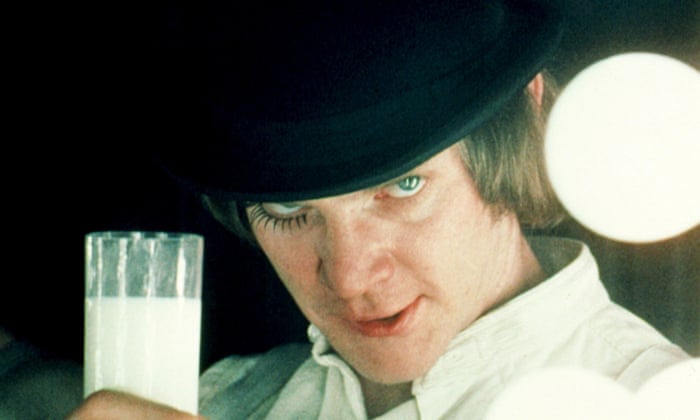
Mike Cernovich (credit: Gage Skidmore, Wikimedia Commons)
Where the Delusional
Get Their Delusions
Our values are getting a
lot of hard scrutiny these days. We’re in the middle of both a global pandemic
and an American election campaign, one that even four years ago seemed
unimaginable to the big majority of people all over the world. The leading
democracy of the world for at least 75 years is immersed in a desperate struggle
between courage and cowardice, wisdom and ignorance, tolerance and intolerance,
and love and hate. The lines of demarcation between these ideals get blurred in
real life -- for years sometimes. But 4 or even 10 years are manageable parts of an
individual’s life and are even more manageable parts in the life of a nation. Large
enough to leave room for a policy or program to have real effect, small enough
to be comprehended and tackled by real politicians dealing in real time. And
over the past 4 years, the goals of the Right and their ways of getting to their goals have become clear.
The people of the U.S. are now facing a choice between a man on one side who, by his actions, has shown he values
profit over compassion, ignorance over understanding, and hate over love. On the
other side is a man who is pretty much the opposite. He understands a good deal
about the world and he cares about real people. He also has the sense to consult
experts about Covid 19 or the Middle East or any other subject when he knows he is over his head.
Not try to bluff his way through every situation, even when secretly, he is woefully
ignorant about it. New York real estate isn’t the world.
“The Art of the Deal” is
the key to all, Trump boasts. But …how does one get a “good
deal” with, a virus? Intimidation? Ass-kissing? Bluff?
How did it come to this? The
world’s leading nation in almost every field turned into a stumbling, punchy version
of its former champion self in under 4 years.
The heart of the matter is
postmodernism. Yes, it’s a big word and most people don’t know much about it or
understand it. But it’s not that complex.
All observing and
thinking is heavily shaped by what the individual observer or thinker took in
during her/his childhood and youth. You tend to grow up thinking in the ways
that the people around you think. But outside your country, people’s ways can
be radically different from the ways of people in your culture. People in
different lands notice different details in the events around them and react to
those details sometimes in very different ways. A Mohawk man walking in the
bush, before any Europeans had contacted his culture, saw cougar tracks, if he
passed them, as automatically as he breathed. A Polynesian man of 600 years ago
knew what different colors in the evening sky meant about tomorrow’s weather.
Europeans
who became farmers when they first came to North America, learned quickly what
the different kinds of winds meant, and they could “feel rain in the air”. By
contrast, people today too often keep glancing at the latest figures from the
markets or even the latest comments on Twitter.
And, postmodernists tell us, no one can say with
evidence to back him up that one culture is obviously superior to the others.
In the various parts of the world and various eras in recorded history, so many
different cultures have had their spell as top dogs that making generalizations
about what an ideal human culture should believe in, and act like, is
impossible. Many had their versions of “law”, “science”, and “economics” in
their times. They all rose – and fell – nonetheless.
So? We conclude that there
is no such thing as “right” or “good”. At least, that’s what the postmodernists
say. We’re all stuck in our little pigeon holes, kidding ourselves that we see
the world for what it is and are the best at handling it.
We are all equally deluded.
There is no way any one person or culture can get a long-term, reliable grip on
what works in life and what doesn’t. Get over it. Get over yourself.
These are the things
postmodernism tells us.
How then are we supposed
to function as a whole society today if many different kinds of people from different
cultures and sub-cultures keep bumping against one another, getting angrier by
the day? Postmodernism basically says it has no answers to such questions. You figure
it out. One event, one day, at a time. And good luck with that. In short, they offer no guidelines for living
life decently at all. They only tell you why all – repeat all – of your ideas
about every subject are deluded. Then, they sneak away.
Now, how does
postmodernism connect to the current U.S. election?
Thousands of Trump’s
supporters are not interested in what the facts say. About Covid 19, the
continuing struggle of the Palestinians, the manipulations of American social
media by Russia, the worsening inequities of the wealth in the West, the continuing
strife between too many white people and the rest, or anything else. “Tell me
the alternative facts, the ones that allow me to go on believing what I want to
believe. Without one moment of discomfort about any of it. There are no ‘facts’
anyway. Tell me what I like to hear or leave me alone.”
In short, the most maddening
beliefs, attitudes, and techniques of argument used by Republicans in the U.S. and the
devotees of the political right all over the world are beliefs, attitudes, and
techniques of argument that they learned from the Democrats, and more
generally, from the elite intellectuals of the Left. Sartre. Derrida. Foucault.
One example of a particularly
offensive misogynist who has an education and is no dummy is Mike
Cernovich. A few minutes researching his name online will lead you to all
kinds of interesting stuff. He’s only one man, but he can serve, for now, as a
paradigm of his kind.
In an article by Alan
Levinovitz (“It’s Not All Relative”, The Journal of Higher Education, Mar. 5, 2017),
Cernovich is quoted espousing the following:
"Look,
I read postmodernist theory in college. If everything is a narrative, then we need alternatives to the
dominant narrative. I don’t seem like a guy who reads Lacan, do I?"
Just one example, but a clear and revealing one, I think. And remember, this man studied Philosophy and Law at the graduate level. These maddening monks of Murdochland learned their best moves -- in the endless shouting that passes for debate in modern American political life -- from the Left.
In the shadow of the mushroom cloud, nevertheless, have a good day, folks.







